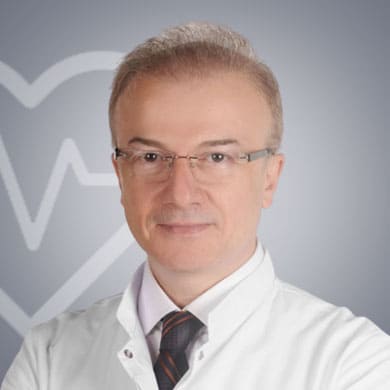
Gynecologist
Verified
Istinye University Bahcesehir - LIV Hospital , Istanbul, Turkey
27 Years of experience
Speaks: English
USD 240 USD 200 for video consultation

Gynecologist
Verified
MediPunto Clinic , Istanbul, Turkey
21 Years of experience
Speaks: English,Turkish
USD 180 USD 150 for video consultation
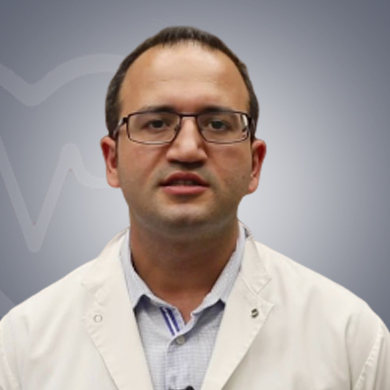
Gynecologist
Verified
Liv Hospital Ulus , Istanbul, Turkey
16 Years of experience
Speaks: English
USD 264 USD 220 for video consultation
Dr. Alper Karalok is a specialized Gynecologist Laproscopic Surgeon in Turkey. And one of the most sought after medical specialists in Istanbul, Turkey. The doctor has over 16 Years of experience and is associated with Liv Hospital Ulus.
Association and Memberships Dr. Alper Karalok is part of:
Qualifications :
Hospital Address :
Ulus Mahallesi, Liv Hospital Group, Canan Sokak, Beikta/Istanbul, Turkey
Medical Expertise of Dr. Alper Karalok
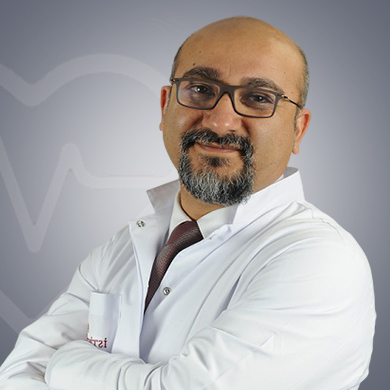
Dr. Bulent Thompson is a specialized Gynecologist Laproscopic Surgeon in Turkey. And one of the most sought after medical specialists in istanbul, Turkey. The doctor has over of experience and is associated with Istinye University Bahcesehir - LIV Hospital.
Qualifications :
Hospital Address :
Ak Veysel Mah, stinye
Using MediGence’s Telemedicine Platform, you can book a personalized video consultation with renowned doctors around the world

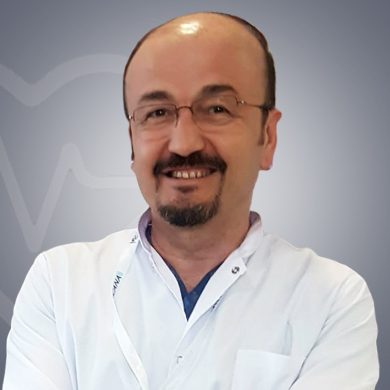
Dr. Birol Vural is a specialized Reproductive Endocrinologist in Turkey. And one of the most sought after medical specialists in Istanbul, Turkey. The doctor has over 23 Years of experience and is associated with Medicana Camlica Hospital.
Qualifications :
Hospital Address :
K?s?kl? Mahallesi, MEDICANA aml?ca Hospital, skdar/Istanbul, Turkey
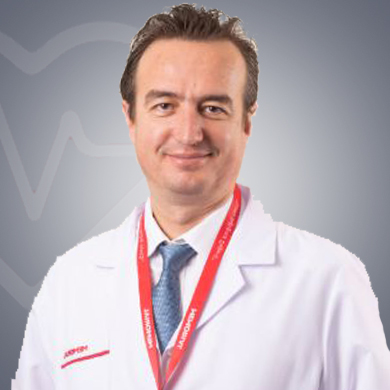
Dr. Murat is a specialized Reproductive Endocrinologist in Turkey. And one of the most sought after medical specialists in Istanbul, Turkey. The doctor has over 25 Years of experience and is associated with Memorial Atasehir Hospital.
Association and Memberships Dr. Murat is part of:
Qualifications :
Hospital Address :
K
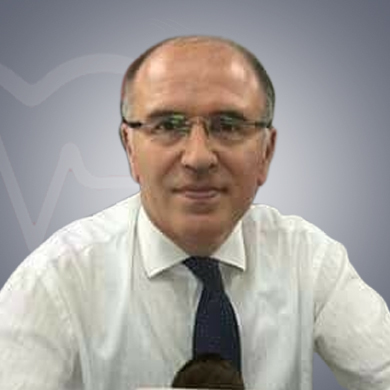
Dr. Necati is a specialized Reproductive Endocrinologist in Turkey. And one of the most sought after medical specialists in konya, Turkey. The doctor has over 0 Years of experience and is associated with Medicana Konya Hospital.
Qualifications :
Hospital Address :
Feritpa?a Mahallesi, Medicana Hospital in Konya, Grz Sokak, Seluklu/Konya, Turkey
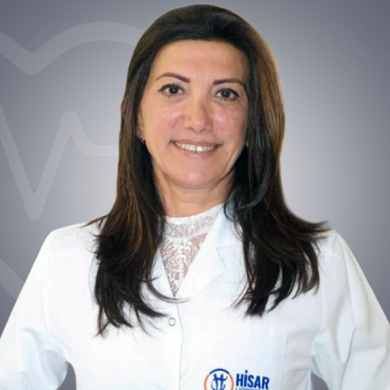
Dr. Berrin Karakuy is a specialized Reproductive Endocrinologist in Turkey. And one of the most sought after medical specialists in Istanbul, Turkey. The doctor has over 24 Years of experience and is associated with Medical Park Antalya Hospital.
Association and Memberships Dr. Berrin Karakuy is part of:
Qualifications :
Hospital Address :
Fener, Medical Park Antalya Hastanesi, Tekeliolu Caddesi, Muratpaa/Antalya, Turkey
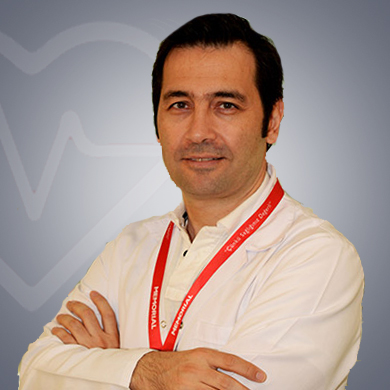
Dr. Umut Gokturk is a specialized Reproductive Endocrinologist in Turkey. And one of the most sought after medical specialists in Istanbul, Turkey. The doctor has over 11 Years of experience and is associated with Memorial Sisli Hospital.
Association and Memberships Dr. Umut Gokturk is part of:
Certifications :
Qualifications :
Hospital Address :
Kaptan Paa Mh, Memorial ili Hospital, Halit Ziya T
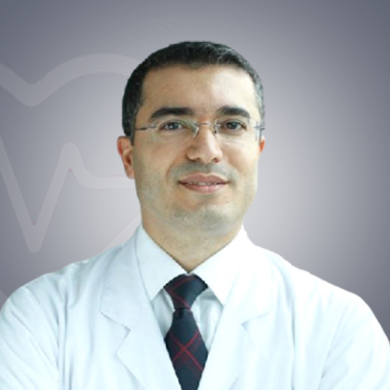
Dr. Yusuf Ustun is a specialized Reproductive Endocrinologist in Turkey. And one of the most sought after medical specialists in Istanbul, Turkey. The doctor has over 17 Years of experience and is associated with Medicana International Ankara Hospital.
Qualifications :
Hospital Address :
S?tz Mahallesi, Medicana International Ankara, S?tz Cad Eski?ehir Yolu zeri, ankaya/Ankara, Turkey
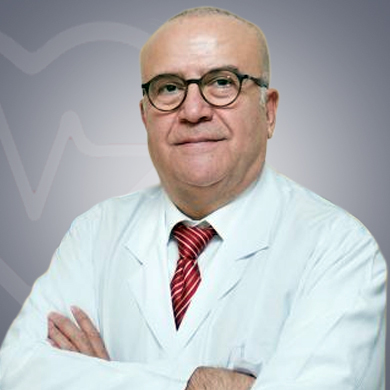
Dr. A Fatih Durmusoglu is a specialized Reproductive Endocrinologist in Turkey. And one of the most sought after medical specialists in Istanbul, Turkey. The doctor has over 38 Years of experience and is associated with Hisar Intercontinental Hospital.
Association and Memberships Dr. A Fatih Durmusoglu is part of:
Certifications :
Qualifications :
Hospital Address :
Saray Mah, Hisar Intercontinental Hospital, Site Yolu Cad, mraniye/Istanbul, Turkey
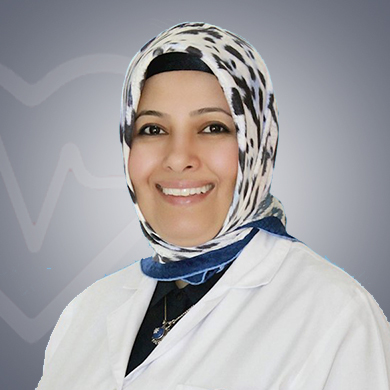
Dr. Ayse Karahasanoglu is a specialized Reproductive Endocrinologist in Turkey. And one of the most sought after medical specialists in istanbul, Turkey. The doctor has over 6 Years of experience and is associated with Medipol Mega University Hospital.
Qualifications :
Hospital Address :
Gztepe Mahallesi, Medipol Mega niversite Hastanesi, Metin Sokak, Ba?c?lar/Istanbul, Turkey
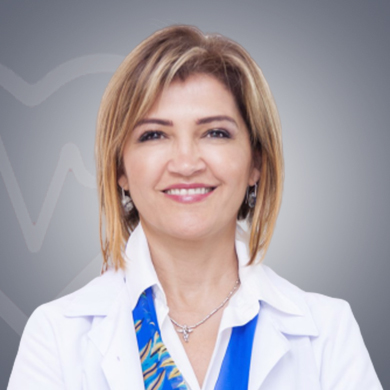
Dr. Tulay Caglar is a specialized Reproductive Endocrinologist in Turkey. And one of the most sought after medical specialists in istanbul, Turkey. The doctor has over 28 Years of experience and is associated with Medical Park Fatih Hospital.
Association and Memberships Dr. Tulay Caglar is part of:
Qualifications :
Hospital Address :
skenderpaa, Medical Park Fatih Hastanesi, Horhor Caddesi, Fatih/stanbul, Turkey
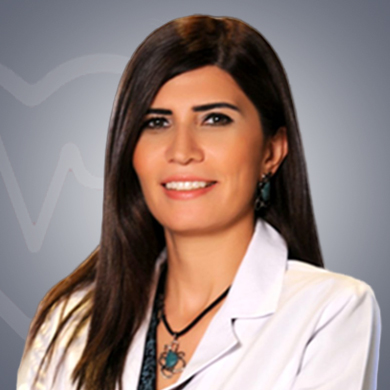
Dr. Nagihan Yilmaz is a specialized Reproductive Endocrinologist in Turkey. And one of the most sought after medical specialists in Samsun, Turkey. The doctor has over 12 Years of experience and is associated with .
Qualifications :
What is the medical expertise of Dr Nagihan Yilmaz?
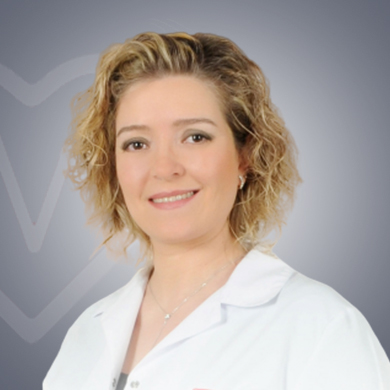
Dr. Emine Ozcan is a specialized Reproductive Endocrinologist in Turkey. And one of the most sought after medical specialists in istanbul, Turkey. The doctor has over 6 Years of experience and is associated with Estetik International.
Qualifications :
Hospital Address :
Fulya, Estetik International, ili/stanbul, Turkey
A fertility specialist is a doctor specialized in reproductive endocrinology and infertility (REI) that is a subspecialty of obstetrics and gynecology. REI is the branch of medicine addressing hormonal functioning pertaining to the reproduction and infertility in women and men. A fertility specialist provides the diagnosis, treatment and prevention of all the issues pertaining to reproductive endocrinology and infertility (REI). For instance, if you have been trying to get pregnant for a year (or six months if above 35 years of age) via natural conception or facing any other issues related to reproductive endocrinology and infertility, you might consider visiting a fertility specialist.
Some of infertility problems for which people visit a fertility specialist include:
Procedures Performed by Fertility Specialist in Turkey
| Doctor | Associated Hospital |
|---|---|
| Dr. Deniz Gokalp | Liv Hospital Ulus, Istanbul |
| Dr. Ayse Saltik | Acibadem Maslak Hospital, Istanbul |
| Dr. Selman Lacin | Medicana International Istanbul, Istanbul |
| Dr. Sibel Sarikaya | Guven Hospital, Ankara |
| Dr. Alper Karalok | Liv Hospital Ulus, Istanbul |
| Dr. Aygun Mammad Zada | Asya Hospital, Istanbul |
| Dr. Tonguc Day | Antalya Anadolu Hastanesi, Antalya |
| Dr. Murat Arslan | Acibadem International Hospital, Istanbul |
Infertility is a disease that is time sensitive. Reproductive health care is therefore an essential service and is why we remain open treating our patients needing the advanced reproductive care they deserve. Our initial fertility consultations are now available as a virtual video meeting on your computer, smartphone, or tablet. Speak directly with one of our doctors and we’ll come up with a plan together in the safety of your own home.
Please make sure to see your doctor using Telemedicine before you even board a flight
Fertility specialists can be categorized into three types based on their specialization and the procedures they carry out. These are:
A gynecologist is a fertility doctor who specializes in women's health and the female reproductive system. They handle a wide range of issues, such as pregnancy and childbirth, obstetrics, menstruation and fertility problems, sexually transmitted diseases, hormone disorders, etc.
Procedures Performed by Gynecologist in Turkey
Who Are Gynecologist Surgeons?
A gynaecologist may not perform surgery. The doctors who are involved in surgical treatments for various issues related to the female reproductive system are called gynecologist surgeons.
When should you visit a Gynecologist Surgeon?
Your physician might recommend you to visit a Gynecologist Surgeon for the following reason:
A Gynecologist Laparoscopic Surgeon is a doctor specialized in performing surgical procedures to view and treat a woman’s reproductive organs. Laparoscopy being a technique wherein a thin viewing tube embedded with telescopic camera is passed through a small incision (cut) in the abdomen, is used in various gynecology treatments. A gynecologist laparoscopic surgeon is mostly visited by women who are facing gyno medical issues like persistent pain in the pelvic area or inability to conceive and get pregnant.
When should you visit a Gynecologist Laparoscopic Surgeon?
What are the diseases a Gynecologist Laparoscopic Surgeon treats?
Procedures Performed by Gynecologist Laparoscopic Surgeons in Turkey
Reproductive endocrinologists are doctors specialized in diagnosing and treating fertility related issues in both males and females. Reproductive Endocrinologists are trained in the subspecialty of Gynecology and Obstetrics including:
Many patients visited by a Reproductive Endocrinologist either face complications or experience fertility related problems.
When should you consider visiting a Reproductive Endocrinologist?
There are various reasons why your doctors might refer you to visit a reproductive endocrinologist, some of which include:
Procedures Performed by Reproductive Endocrinologist in Turkey
Popular Fertility Specialist in Top Countries are :
Top Speciality Doctors in Turkey:
List of Top Rated Hospitals where we can find Fertility Specialist in Turkey are as followed:
Yes, we provide the list of Fertility Specialist in Turkey in the following languages:
Here are some of the best rated fertility specialist available for online consultation in Turkey:
Here are some of the best rated fertility specialist in other countries:
Listed below are some of the top hospitals in Turkey where fertility specialist work:
A fertility specialist is a doctor who specializes in diagnosing and treating fertility problems, to help people who are unsuccessfully trying to have a baby. Fertility doctors treat conditions related to both male and female infertility.
A fertility doctor is also a reproductive endocrinologist who practices obstetrics and gynecology called reproductive endocrinology & infertility (REI). It is a field of medicine that studies hormonal functioning as it is related to reproduction and infertility in both men and women. An infertility workup also includes an endometrial biopsy to determine whether imbalanced hormone levels are affecting the endometrium.
Once a fertility specialist has received as much information as he or she could from the infertility workup, they will recommend suitable fertility treatment options. Common fertility-related conditions treated by fertility specialists include ovulation problems, hormonal disorders, polycystic ovarian syndrome (PCOS), weight or age-related infertility, endometriosis, fibroids, blocked fallopian tubes, azoospermia, abnormal sperm production, fertility-related to certain genetic conditions.
A student willing to become a fertility specialist needs to clear a medical entrance test to pursue a five-and-half-a-year MBBS course. This includes both academic education as well as on-field training. After this, they need to earn a Doctor of Medicine (MD) degree. The MD course will be for 3 years. Earning an MD degree is a prerequisite for more specialized knowledge in reproductive medicine. Typically, a fertility doctor follows the educational path of a GYN/OB before getting specialized education.
Steps to become a fertility specialist:
A fertility specialist specializes in the treatment of fertility issues. But there may be other conditions related to the male and female reproductive system that can be treated by a fertility doctor.
Some common conditions treated by a fertility expert are listed below:
Before infertility testing, a fertility specialist works to understand your overall sexual habits in order to make recommendations to increase your chances of getting pregnant. An evaluation for infertility must be done in a focused way to determine all relevant factors and should include the female as well as male partners. The least invasive methods that help detect the most common causes of infertility must be done first.
The following tests may be recommended as part of your infertility evaluation:
Fertility specialists are technically gynecologists or urologists who have had additional training in dealing with issues related to the reproductive organs. There are various reasons your doctor might refer you to a fertility specialist, some of which are given below:
Much of the first appointment with a fertility specialist will focus on the review of your overall medical history and discussion about the possibility of male-factor issues. The fertility specialist may ask you to have blood tests done or go for a pelvic exam, and might also prescribe tests for the male or female partner. If these tests are already been done, the doctor will review, and then discuss the results with you.
Make sure that you write down all questions that come to your mind beforehand and share them with your doctor because this is the opportunity to understand what might happen next and what decisions you need to make to get desired results. Always feel free to clear your doubts with your medical team. It is their core responsibility to educate you and also respond to your concerns.
When you visit for the first time, the fertility doctor would want to determine whether there are any medical issues in your or your partner’s history that may lead to an underlying medical condition that is resulting in infertility that might need further evaluation. The next steps can involve the evaluation of the ovaries, the Fallopian tubes, and the sperm count.
Take online renowned doctors’ consultation with Telemedicine by MediGence, regardless of wherever you are.
How to access Telemedicine?
Exploring & Booking an appointment with the specialist in 3 simple steps-
Telemedicine enables you to-
Our Telemedicine offering makes things simple via its user-friendly interface.
Exploring & Booking an appointment with the specialist in 3 simple steps:
Experience online doctor consultations; Simple & Secured with MediGence…